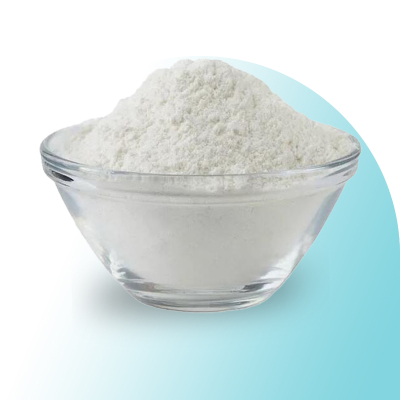Does resistant dextrin increase blood sugar?
Introduction to Resistant Dextrin
Resistant dextrin is gaining popularity as a dietary fiber. It is produced from starch through the process of enzymatic hydrolysis. Many consumers wonder: "Does dextrin increase blood sugar levels?" Understanding how resistant dextrin affects blood sugar levels is critical for those watching their glucose intake.
What is resistant dextrin?
Resistant maltodextrinis a type of soluble fiber. It is not easily digested in the gastrointestinal tract. Instead, it passes to the colon, where it acts as a prebiotic. This means that it promotes healthy gut microbiota. In contrast, many other carbohydrates are quickly absorbed, leading to spikes in blood sugar levels.
How resistant dextrin affects blood sugar levels
When it comes to "Does resistant dextrin increase blood sugar?", it is important to consider its glycemic index. Resistant dextrin has a low glycemic index, which means it does not cause significant increases in blood sugar levels. Additionally, research shows that it can help control blood sugar levels by slowing down the digestive process.
The role of inaccessible dextrin
Unavailable dextrinis another term that often comes up in discussions about resistant dextrin. This type of fiber also promotes blood sugar stability. When consumed, unavailable dextrin slows down the absorption of glucose into the blood. Hence, it helps prevent sudden increases in blood sugar levels.
Organic Resistant Tapioca Dextrin
Many consumers are interestedorganic resistant tapioca dextrinas a healthier alternative. This product is derived from tapioca starch and is also considered low in calories. It offers similar benefits to traditional resistant dextrin. It is a source of dietary fiber without raising blood sugar levels.
Fiber and Blood Sugar Control
Fiber plays a significant role in managing blood sugar levels. High-fiber foods, such as those containing resistant dextrin, promote feelings of fullness. This feeling can lead to reduced calorie intake and better weight control. At the same time, maintaining a healthy weight is critical to controlling blood sugar levels. Therefore, incorporating fiber into your diet can be beneficial.
Clinical studies and results
Research suggests that consuming resistant dextrin may be beneficial for controlling blood sugar levels. In one study, participants who included resistant dextrin in their diet experienced lower blood sugar levels after eating. However, individual reactions may vary. It is important to monitor your blood sugar regularly to understand how your body is reacting.
Comparison of resistant dextrin with other carbohydrates
When considering the question "Does dextrin increase blood sugar levels?", it is useful to compare resistant dextrin to other carbohydrates. Many foods with a high glycemic index can cause sudden spikes in blood sugar levels. In contrast, resistant dextrin provides a slow and steady release of glucose. This quality makes it a preferred option for those seeking to effectively manage blood sugar level.
Practical application of resistant dextrin
Incorporating resistant dextrin into your diet is easier than you might think. It can be added to smoothies, baked goods and other recipes without changing the taste. On the other hand, it is important to check product labels to ensure you are choosing high-quality sources of resistant dextrin.
Conclusion: Summary
So,does resistant dextrin increase blood sugar levels? The evidence suggests that it does not increase. In fact, resistant dextrin and its variants such as unavailable dextrin and organic resistant tapioca dextrin may be beneficial for managing blood sugar levels. Your choice to include these fibers in your diet can contribute to better health outcomes. As always, consult with a healthcare professional to tailor dietary choices to your specific needs.



